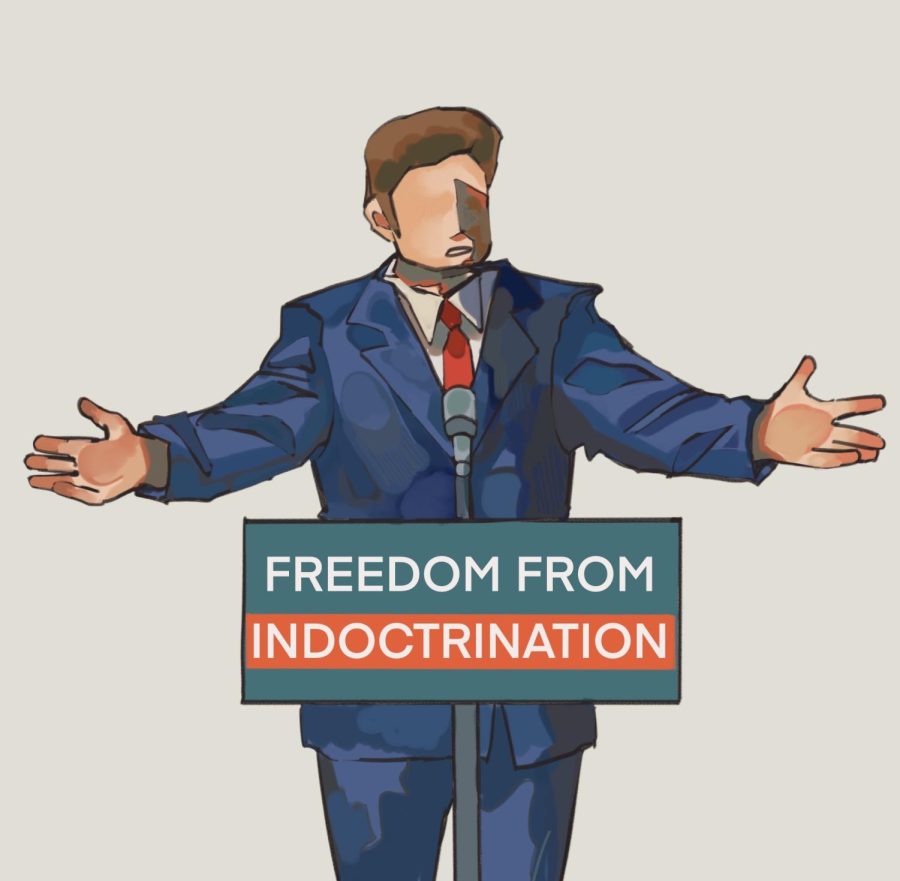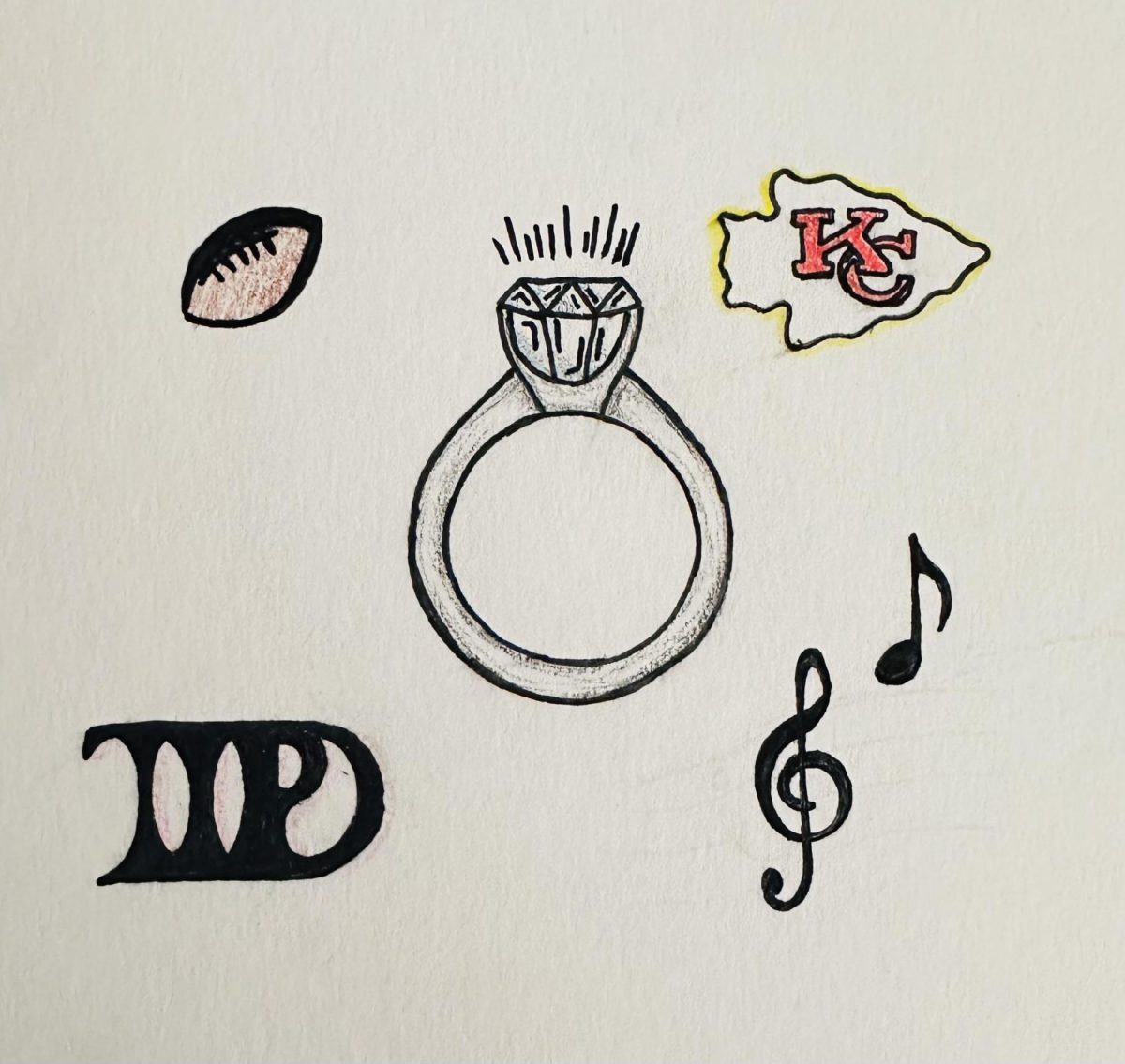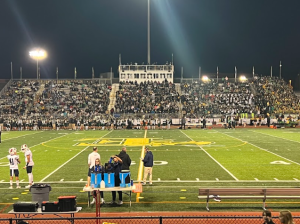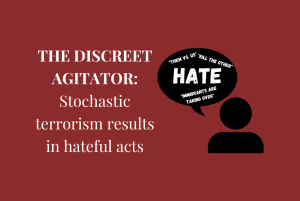DeSantis attempts to rewrite history: Florida governor bans AP African American Studies
Feb 28, 2023
This previously ran in our February 2023 print issue.
In 2021, the standardized testing giant and not-for-profit organization, College Board, unveiled its first course fully reflecting African American history: Advanced Placement (AP) African American Studies (APAAS).
Introduced for the 2022-23 school year, this pilot program strives to fully explore African American history and culture, including touching on controversial topics such as affirmative action and reparations.
Although African and African American culture is touched on in AP World History: Modern and in AP U.S. History (APUSH), it still leaves much uncovered.
While significant events in African American history and culture, like the Harlem Renaissance or the Black Power movement, are mentioned in APUSH, several details and people are left out due to not having enough time to teach it.
Similarly, in AP World History, African culture is barely discussed at all. Neither course even begins to discuss newer aspects of African or African American culture, like Afrofuturism: an intersection of philosophy, science, and history through the lens of the African diaspora (particularly African Americans). APAAS would shine a larger light on this historically marginalized community, and further explore Black culture and heritage that has been largely ignored (or at best skimmed over) in mainstream AP history classes.
Last month, this course faced controversy as the Florida gov., Ron DeSantis, declared the course “lacks educational value” and claimed that it violated Florida state law. The law in question is the “Stop WOKE” Act, passed in March 2022. Among other things, this law prohibits the teaching of Critical Race Theory, the belief that systemic racism is ingrained in American society. In a letter to the College Board, DeSantis went on to say APAAS was “historically inaccurate” and that the course attempts to push a leftist political agenda onto students.
According to a statement recently released by the College Board, multiple attempts were made to communicate with the Florida Department of Education (FDOE) about their objections to the course, but no progress was made. The nonprofit reported that when they asked FDOE about their concerns with the course, they never received any specific response or feedback.
This lack of specific objections proves that Florida’s move to ban APAAS was not truly based on any real objections to the content itself, but was rather a politically motivated stunt. The College Board has denounced Florida’s decision as such, in addition to expressing their regret for “not immediately denouncing the Florida Department of Education’s slander.”
It is important to note that the College Board has spent over a decade creating and refining this course, consulting with many historians, college professors, high school teachers, and other professionals constantly along the way.
DeSantis, who has no background in education, is nowhere near qualified to call the shots on what is and isn’t historically accurate.
The narrative that DeSantis continues to push is misleading and hypocritical at best, and inherently flawed and corrupt at worst. APAAS teaches the history of a people — in this case, African Americans — as do AP World History: Modern, AP U.S. History, and AP European History. So, why should this one be any different?
APUSH has always addressed controversial topics such as abortion, gay marriage, and racism, and yet DeSantis doesn’t have a problem with it. It is hypocritical of him to denounce APAAS for covering “woke” material, like the existence of racism in our society, while APUSH covers much of the same material.
As for DeSantis’s claim that APAAS indoctrinates children into a certain political ideology, DeSantis is certainly guilty of the same accusation. By blocking significant parts of students’ education — gender identity (“Don’t Say Gay” Act), Critical Race Theory (“Stop WOKE” Act), etc. — through legislation, DeSantis cultivates an ideology more acceptable to conservatives, one which whitewashes history and ignores the critical flaws in our nation.
The fact of the matter is, our country still struggles with the acknowledgement of racism. In this year alone, we have witnessed the brutal murders of Tyre Nichols and Keenan Anderson by corrupt police forces. It is statistically proven, time after time, that in this country, Black people are more than three times more likely than white people to be killed by law enforcement. Eliminating classes discussing this issue, or banning books — as DeSantis and the Florida Department of Education have so often done (Florida has the second-most book bans out of any state) — does not seek to improve that problem.
If anything, banning these classes is its own kind of indoctrination — telling students that African American culture and history is a false narrative and “lacks educational value.”
In order for our nation to move past the racism which has tainted the history of this country, we first must acknowledge it. Part of that acknowledgement is making that history — not just of slavery, but of the distinct and beautiful uniqueness of African American culture — more accessible to younger generations, so that they can contribute to a more educated and active society.
Above all, African American history is American history, and all students should at least have the option to learn about it at a higher level. In a 10-0 vote, The Stinger Editorial Board firmly stands against DeSantis’s actions, and in support of keeping the AP African American History course for the sake of all students.












